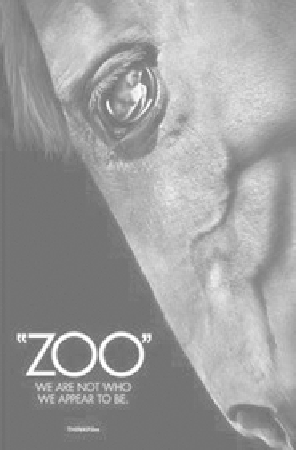Geoscience Reference
In-Depth Information
w m m
In an attempt to challenge one-sided, pejorative views of bestiality, the 2007 docu-film
Zoo
attempted
to represent bestial desire and behaviour from the zoophile perspective. The movie poster's tag line
was arguably intended to have a wider significance. The 'we' in 'We are not who we appear to
be', it seems to imply, extends well
beyond
bestialists. In a range of ways, societies too often force
'alternative' identities and practices underground, and judge them harshly when, as in the Enumclaw
case, they become visible in the mainstream.
In an attempt to challenge one-sided, pejorative views o f bestiality, the 2007 docu-film
Zoo
attempted
to represent bestial desire and behaviour from the zoophile perspective. The movie poster's tag line
was arguably intended to have a wider significance. The 'we' in 'We are not who we appear to
be', it seems to imply, extends well
beyond
bestialists. In a range o f ways, societies too often force
'alternative' identities and practices underground, and judge them harshly when, as in the Enumclaw
case, they become visible in the mainstream.
from the zoophile perspective, without explicitly advocating for zoophilia
or bestiality. It received critical acclaim and featured in two internation-
zoophilia, can reasonably be seen as analogous to where the gay rights move-
ment and the gay community were in most Western countries 40 years ago.
Man-man and woman-woman sex acts were once routinely outlawed and
considered 'disgusting', 'perverted' and 'unnatural' as recently as the 1960s
in the United States, United Kingdom and elsewhere. Yet, over time, the
boundary between 'good' and 'bad' interpersonal sex was relocated in both
Western culture and law. What's more, it became accepted that homosexual-
ity is (or can be) part of a person's
identity
, not simply a preference or a type
of behaviour. In recalling this process of slow acceptance, I'm not suggest-
ing that zoophilia will become normalised in the years ahead. Instead, I'm
saying that because all attempts to define 'proper' identities and behaviour
are underpinned by struggles over meaning, the losers in those struggles
usually end up as outcasts or operate below the radar of social visibility.
When the winners get to reposition the border between what's accept-
able and what's not, they remind us that all borders (and boundaries) are


